
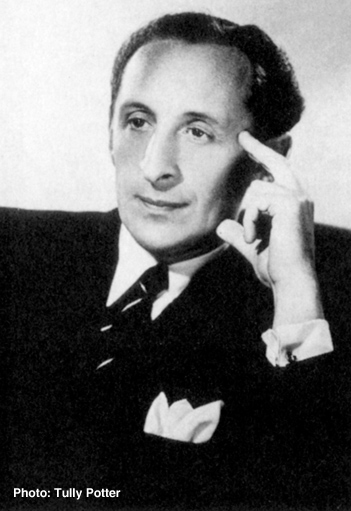
Although he grew up in Kiev, and claimed that was the city of his birth, it is possible that Horowitz’s birthplace was actually Berdichev, situated southwest of Kiev. Horowitz was born into a well-to-do, cultured family and he received his first piano lessons from his mother. At the age of nine he entered the Kiev Conservatory where he studied with Vladimir Puchalsky, then with Sergei Tarnowsky; both had been pupils of Theodor Leschetizky. From 1919 Horowitz studied with Felix Blumenfeld, a pupil of Anton Rubinstein. Although never a performing child prodigy, Horowitz was always the centre of attention as a child and adolescent due to his extraordinary talent at the keyboard, and this environment moulded his personality as an adult.
Horowitz made his debut in Kiev in 1920, the year that he graduated from the Kiev Conservatory. His family had lost everything in the Revolution, so young Vladimir had to earn a living. Although an unknown, after a few performances news of Horowitz spread and his concerts were well attended. During this period he also performed with violinist Nathan Milstein; they played to packed houses in Petrograd (now St Petersburg) in 1923 and during the following concert season Horowitz gave twenty recitals of ten programmes.
Horowitz left the Soviet Union in 1925 to make his debut in Berlin (and to avoid military service). He had great success after three performances in Berlin in January 1926, and a performance in Hamburg secured his reputation in Germany. In February he conquered Paris and received great acclaim throughout Europe with the exception of London. Horowitz’s New York debut is notorious for the disagreement in tempi taken by pianist and conductor Thomas Beecham in a performance of Tchaikovsky’s Piano Concerto No. 1 in B flat minor Op. 23. Horowitz was there to dazzle his audience, Beecham was not there to concur with his soloist. Horowitz was in demand everywhere, yet at his New York recital debut in November 1928 one critic wrote, ‘His appearances here have given rise to some misgivings regarding the true significance of his deeper musical gifts, and last night the doubters had further justification for their fears.’
Since his European debut Horowitz had continued a gruelling series of appearances. He gave three concerts at Queen’s Hall in London in February and March of 1936. One reviewer noted, ‘…in general his playing fascinates to the point of mesmerism by the sheer beauty of its sound – meaning, pattern, description, all are embodied in the studied subtleties of pianoforte tone.’ However, at the third concert he played Rachmaninov’s Piano Concerto No. 3 in D minor Op. 30 and Beethoven’s Piano Concerto No. 5 in E flat Op. 73 with the London Philharmonic Orchestra and John Barbirolli. Of the Beethoven, The Times critic wrote, ‘What we were given was a glittering superficiality that from the very first page ignored Beethoven’s espressivo, and took no account of the architecture of the work.’ This type of criticism from opposite poles was to dog Horowitz throughout his career. He could whip an audience into a frenzy while the critics complained of a lack of musicianship.
In 1933 Horowitz had married the daughter of conductor Arturo Toscanini (the lifestyle of whose family was far from harmonious and calm) and by 1936 he was suffering from nervous exhaustion. Not long after the London concerts described he retreated from public appearance for two years in an attempt to recover his physical and mental health in Switzerland. During the 1940s Horowitz lived in the United States and performed a great deal. In 1953 he celebrated the twenty-fifth anniversary of his American debut, but the following month a performance of the Piano Sonata in B flat D. 960 by Schubert received bad notices. Again, overworked and exhausted, the highly-strung Horowitz retired from the concert stage, this time for twelve years. His come-back concert at Carnegie Hall in May 1965 was a huge success as was the recording of it, issued by CBS. His playing sounded less brittle and had acquired a new maturity; but once more, less than four years later he disappeared from public performance again, and during the 1970s only performed after 1974.
In 1978 Horowitz celebrated the Golden Jubilee of his American debut with a performance of Rachmaninov’s Piano Concerto No. 3 in D minor Op. 30 at Carnegie Hall with the Philadelphia Orchestra and Eugene Ormandy. He had not appeared with an orchestra for twenty-five years, and his playing was again brittle, overwrought and frenetic. The concert was televised and recorded for release on LP. In 1982 Horowitz appeared in London after an absence of more than thirty years. He gave a recital (on his own piano which he took with him) in aid of the Royal Opera House Development Appeal and raised £80,000. The concert was broadcast on television throughout Europe, Japan, the United States, Central and South America. Concerts in Japan the following year were disastrous. Horowitz, who was on drugs prescribed by his psychiatrist since 1975, played badly, with memory lapses and many wrong notes. It was a tragedy that he ever performed in this debilitated state. Another retirement from the stage abruptly followed.
Horowitz’s return to the stage in 1985, when he played in Paris and Milan, was a resounding success. Gone was the incoherent, distorted playing of previous years, and in its place came a calm and serene pianist who, at over eighty years of age, could still amaze and dazzle his audience. The following year he returned to his homeland, giving concerts in Moscow and Leningrad; he had not set foot in Russia for more than sixty years. Following on from Russia, Horowitz played in Germany, London and Tokyo where he restored his reputation. He continued to give concerts until 1987 and died peacefully at his home in 1989.
The last years were certainly the Indian summer of Horowitz’s career when he probably played at his best. Some of the performances from the Moscow recital were miraculous by any standards of piano playing. Arguably the most famous pianist of the twentieth century, Horowitz was unique and will always attract both criticism and praise. The article in the 1980 Grove Dictionary of Music and Musicians by Michael Steinberg states, ‘He conceives of interpretation not as the reification of the composer’s ideas, but as an essentially independent activity’, and concludes, ‘Horowitz illustrates that an astounding instrumental gift carries no guarantee about musical understanding.’ However, Horowitz was the only pianist who could create an excitement and apprehension in his audience before he even appeared. As soon as a concert was announced, tickets would be sold out immediately to people who had been standing in line for many hours.
Horowitz was very knowledgeable about the piano and opera repertoire and played many works that he never publicly performed. His concerto repertoire was small – Rachamaninov’s Piano Concerto No. 3 in D minor Op. 30, Tchaikovsky’s Piano Concerto No. 1 in B flat minor Op. 23, both the Brahms concertos, Beethoven’s No. 5 and a few by Mozart. His solo repertoire was based on the Russians such as Rachmaninov, Prokofiev and Scriabin, and he played a large amount of music by Chopin and Schumann. He made special studies of works by Clementi and Scarlatti and excelled in the virtuoso pieces by Liszt and encore pieces by other nineteenth-century composers such as Moszkowski and Tausig.
Horowitz made his first recordings for Victor at the time of his American debut in 1928 and recorded for RCA Victor until 1962 when he switched to Columbia. After twelve years with Columbia, Horowitz returned to RCA (from 1975 to 1983) and his final recordings were made for Deutsche Grammophon, with his final recital disc, The Last Recording, being made for CBS/Sony. From the 78rpm era his best discs include his recording of Liszt’s Piano Sonata in B minor and ‘Paganini’ Étude No. 2 in E flat. This is the young Horowitz whose razor-sharp rhythm and dynamic contrasts so excited his audiences. One of his own arrangements, his Variations on music from Bizet’s Carmen, is another dazzling encore that he recorded commercially at least four times. The 1930 recording of Rachmaninov’s Piano Concerto No. 3 in D minor Op. 30 with Albert Coates and the London Symphony Orchestra is frenetic, and the ‘filler’ of the same composer’s Prélude in G minor Op. 23 No. 5 shows the fallible side of Horowitz’s playing. His Carnegie Hall recitals from the 1940s and 1950s were recorded and RCA have issued works from these recitals plus his studio recordings, but have never issued a satisfactory complete edition of Horowitz’s recordings as befits the artist. In 1994 two compact discs of performances from the Carnegie Hall concerts were issued under the title of The Private Collection, as the unique discs came from Horowitz’s own collection. Included were the New York premières of Kabalevsky’s Piano Sonata No. 2 Op. 45 and some of Samuel Barber’s Excursions. These provide a good snapshot of Horowitz in the mid-1940s, but other recordings from this time such as Balakirev’s Islamey still have not been released.
Of the Columbia recordings from the 1960s The Legendary 1965 Carnegie Hall Return Concert remains impressive, even in its latest incarnation from Sony as ‘completely unedited’. A disc of Scarlatti sonatas from 1964 and one of Scriabin from 1972 are some of the best studio recordings Horowitz made for CBS. Of the Deutsche Grammophon discs, Horowitz in Moscow is excellent, capturing this important event, whilst The New York Sessions 1985 from September of that year contain some beautiful playing, as in the Impromptu in F sharp major, an unusual work by Liszt. Deutsche Grammophon recorded Horowitz in his home on a number of occasions and from these sessions comes a wonderful performance of Schubert’s Serenade arranged by Liszt. All the subtleties of Horowitz’s pedalling, dynamic shading and tone control are displayed here.
Of course a great deal of live material has surfaced. In 2003 RCA issued a Carnegie Hall recital of November 1975 as Horowitz Rediscovered, whilst Sony have reissued the Carnegie Hall recital of 1965 without the edits that had appeared on previous issues. In 1997 APR issued live performances of Rachmaninov’s Piano Concerto No. 3 Op. 30 and Tchaikovsky’s Piano Concerto No. 1 in B flat minor Op. 23 with the New York Philharmonic Orchestra and John Barbirolli. Neither of these performances had been issued before, and the Rachmaninov performance received rave reviews.
© Naxos Rights International Ltd. — Jonathan Summers (A–Z of Pianists, Naxos 8.558107–10).
| Title | |
| HOROWITZ IN LONDON | |
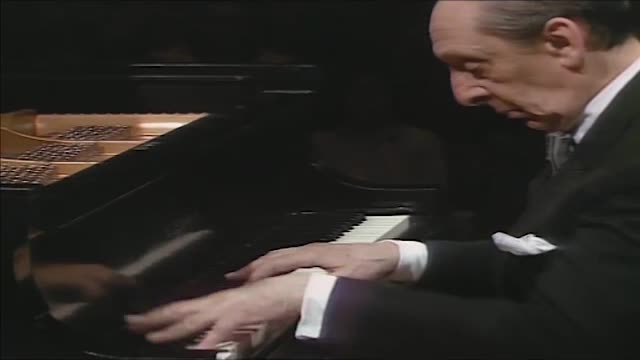
|
HOROWITZ IN LONDON
Composers:
Chopin, Fryderyk -- Rachmaninov, Sergei -- Schumann, Robert -- Scriabin, Alexander
Artist:
Horowitz, Vladimir
Label/Producer: C Major |
| HOROWITZ IN MOSCOW | |
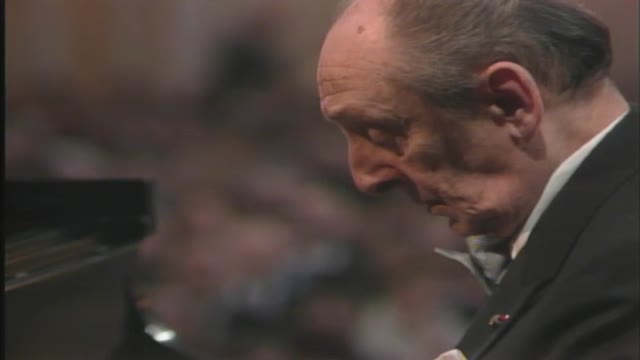
|
HOROWITZ IN MOSCOW
Composers:
Chopin, Fryderyk -- Liszt, Franz -- Moszkowski, Moritz -- Mozart, Wolfgang Amadeus -- Rachmaninov, Sergei -- Scarlatti, Domenico -- Schubert, Franz -- Schumann, Robert -- Scriabin, Alexander
Artist:
Horowitz, Vladimir
Label/Producer: C Major |
| HOROWITZ IN VIENNA | |
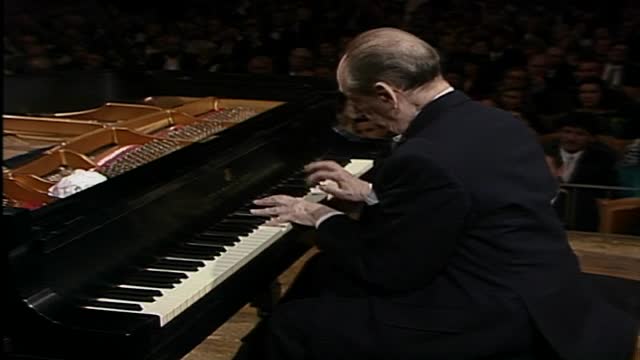
|
HOROWITZ IN VIENNA
Composers:
Chopin, Fryderyk -- Liszt, Franz -- Moszkowski, Moritz -- Mozart, Wolfgang Amadeus -- Schubert, Franz -- Schumann, Robert
Artist:
Horowitz, Vladimir
Label/Producer: C Major |
| HOROWITZ, Vladimir: Reminiscence (A) | |
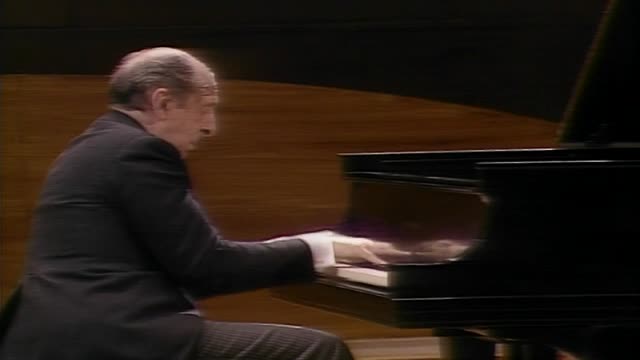
|
HOROWITZ, Vladimir: Reminiscence (A)
Artist:
Horowitz, Vladimir
Label/Producer: C Major |
| HOROWITZ, Vladimir: The Last Romantic | |
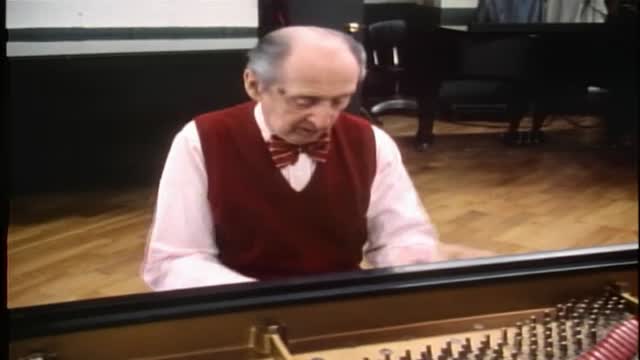
|
HOROWITZ, Vladimir: The Last Romantic
Artists:
Horowitz, Vladimir -- Toscanini Horowitz, Wanda
Label/Producer: C Major |
| MOZART, W.A.: Piano Concerto No. 23 (Horowitz, Giulini) | |
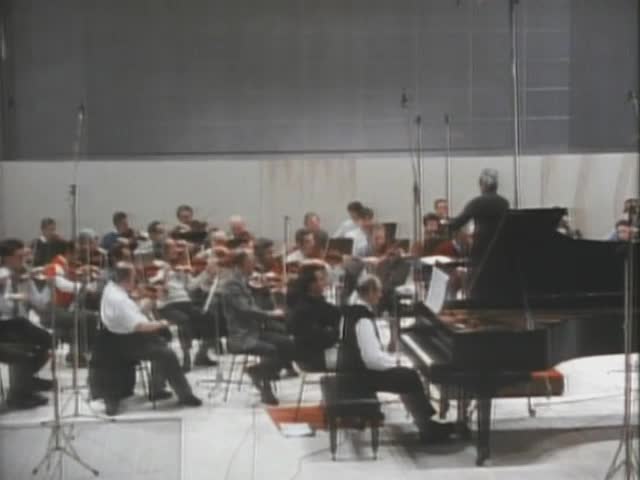
|
MOZART, W.A.: Piano Concerto No. 23 (Horowitz, Giulini)
Composer:
Mozart, Wolfgang Amadeus
Artists:
Giulini, Carlo Maria -- Horowitz, Vladimir -- Milan La Scala Orchestra
Label/Producer: C Major |
| VERBIER FESTIVAL HIGHLIGHTS 2007 | |
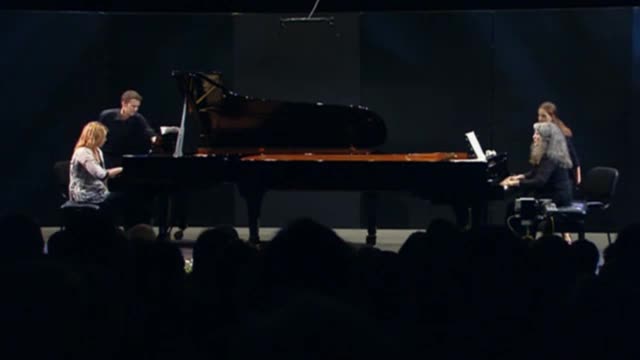
|
VERBIER FESTIVAL HIGHLIGHTS 2007
Composers:
Bartok, Bela -- Bizet, Georges -- Debussy, Claude -- Liszt, Franz -- Lutoslawski, Witold -- Ravel, Maurice -- Schubert, Franz -- Schumann, Robert -- Tchaikovsky, Pyotr Il'yich
Artists:
Argerich, Martha -- Bell, Joshua -- Capucon, Renaud -- Davis, Andrew -- Freire, Nelson -- Grimaud, Helene -- Kissin, Evgeny -- Maisky, Mischa -- Montero, Gabriela -- Quasthoff, Thomas -- Shoji, Sayaka -- Tomter, Lars Anders -- UBS Verbier Festival Orchestra -- Vogt, Lars
Label/Producer: EuroArts |
